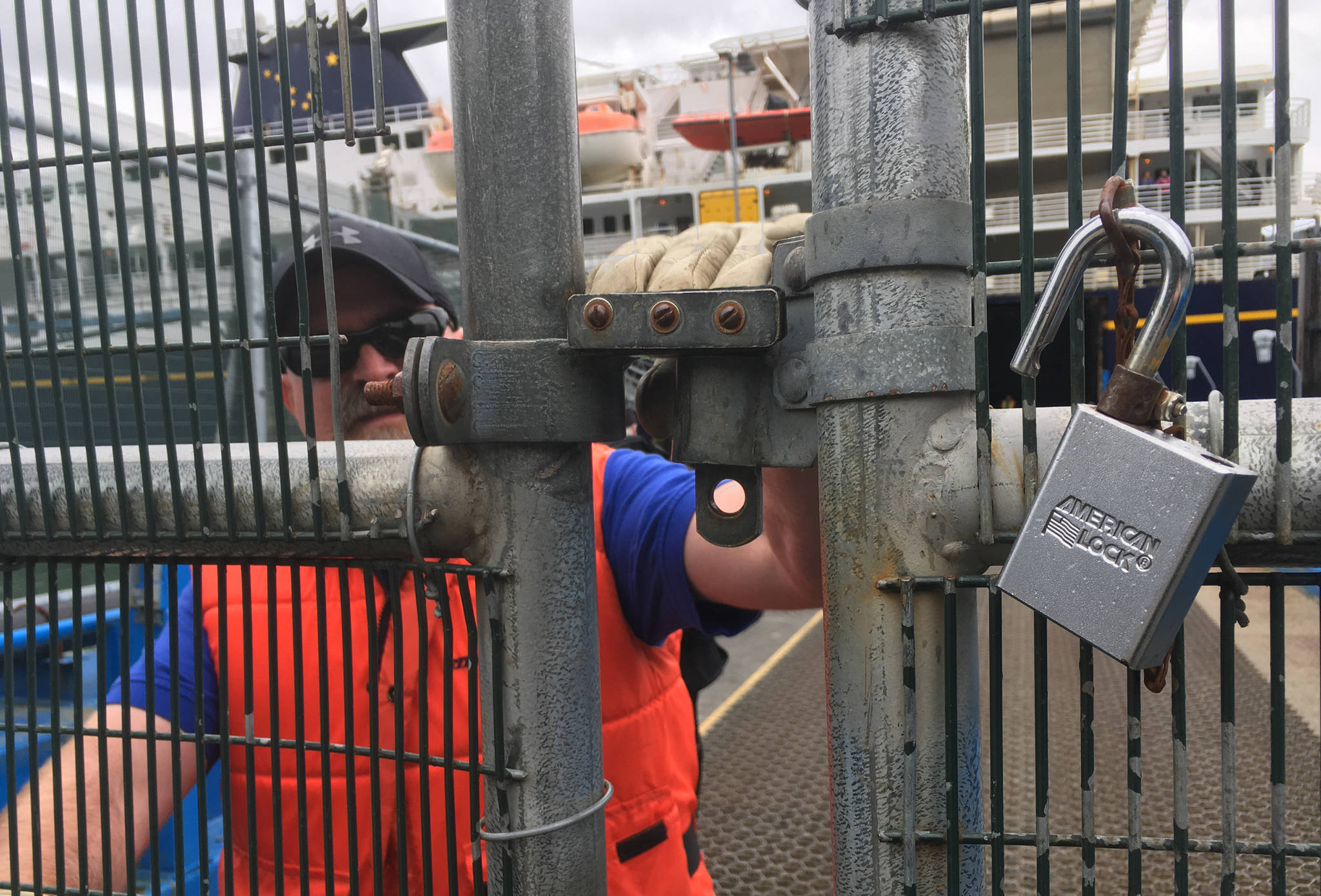HAINES — A legislative mistake may mean a spring shutdown of the Alaska Marine Highway.
Pat Pitney, director of the Alaska Office of Management and Budget warned legislative leaders of the oversight in a letter dated Sept. 19, and on the following day, Sen. Bert Stedman, R-Sitka, revealed the trouble to attendees of the annual Southeast Conference meeting here.
“The marine highway’s going to run out of money sometime in early April,” Stedman said to a room surprised into silence.
Department of Transportation commissioner Marc Luiken confirmed that the state does not have enough money to operate its ferry system through the end of the fiscal year but said the exact date will depend on a variety of factors, such as fare revenue, that aren’t known.
Stedman had harsh words for finance-committee legislators that made it happen.
“I got to hand it to the guys. They’re very creative in the skullduggery and the budget sleaziness going on,” he said.
Pitney and OMB analyst Brian Fechter explained the details of the error to the Empire by phone after Stedman’s announcement.
Each year, the Legislature drafts and passes a budget that the state must follow in the year to come, but things always come up. There are wildfires, disasters and unforeseen expenses that weren’t predicted in the budget. Sometimes a state department even spends less than predicted.
To fix those problems, the Legislature approves a supplemental budget, one that retroactively covers money the state has already spent.
It’s an ordinary action that in the past few years has been used in an extraordinary way.
For the past few years, the state has been using the supplemental budget as a tool to make budget cuts appear larger. To make the fiscal year 2018 budget appear smaller, the Legislature shifted some spending into 2017. It did the same last year as well.
“It’s like spending more than you make from their checking account, but to fill in the gap, they made a transfer from savings to checking,” Fechter said. “Except the transfer to checking never happened.”
Last year, lawmakers set aside $100 million from the Constitutional Budget Reserve to pay for unforeseen items in the supplemental budget this year.
About $30 million of that money was supposed to go into a savings account used by the ferry system, but this year’s supplemental budget contained some special language. If the supplemental budget needed more than $100 million, the ferry system would be the first thing cut.
This spring, Medicaid expenses were higher than expected, and the Legislature added some more items to the supplemental budget.
Instead of $30 million, only $7.3 million was transferred to the ferry system’s savings account.
At the same time, in the state’s regular operating budget, lawmakers directed the ferry system to use money from its savings account to keep running.
As a result, there isn’t enough money.
No one caught the problem before the budget was signed into law: not lawmakers, not the Alaska Department of Law, not the Office of Management and Budget.
“I think because those final things were done so late, there was no way to react to a problem,” Pitney said by phone. “We didn’t know that we were going to threaten the $100 million limit because there wasn’t that many supplementals in that list.”
The Empire attempted to contact Rep. Paul Seaton, R-Homer, who was in charge of the House side of the operating budget, and Sen. Lyman Hoffman, D-Bethel, who was in charge of the Senate side, but staffers each said Wednesday they were not immediately available.
Hoffman was traveling in Anchorage, while Seaton was working on his boat.
A preliminary version of the supplemental budget was drafted in April, but lawmakers deadlocked until the end of June, and when they finally reached agreement, there were only a handful of days for state workers to find errors.
Fixing the problem will require action by the Legislature in early 2018. Gov. Bill Walker is expected to ask the Legislature for supplemental funding to avert a ferry-system shutdown, and lawmakers must approve that funding to avoid consequences.
“They will not have the authority to run the system if the Legislature does not provide the money, period,” Stedman said.
He vowed to do everything possible to avert a systemwide shutdown.
If the Legislature fails to add money, there will be dire consequences, Stedman said.
“And if they don’t do that, my colleagues in the Senate will cut our throat and I can’t put it any more plainly than that,” he said.
Editor’s note: After the initial publication of this story, the Empire contacted Stedman to clarify the final quote of this story and updated it with that clarification. The Empire subsequently obtained a better-quality recording of the speech from CoastAlaska radio’s Ed Schoenfeld and has updated the story a second time.
• Contact reporter James Brooks at james.k.brooks@juneauempire.com or call 523-2258.

